At Point b, Clause 2, Article 17 of the current Enterprise Law, cadres, civil servants, and public employees are not allowed to participate in the establishment and management of enterprises in Vietnam (no exceptions). However, the draft law proposes that cadres, civil servants, and public employees (according to the provisions of the Law on Cadres, Civil Servants and the Law on Public Employees) do not have the right to establish and manage enterprises in Vietnam, except for management officials working at public science and technology organizations and public highereducation institutions according to the provisions of the law on science, technology and innovation.
Currently, the draft Law on Science, Technology and Innovation acknowledges this issue and is expected to be submitted to the National Assembly for approval at the 9th session. Another reason given for proposing this provision is to comply with Article 4, Resolution 193/2025/QH15 of the National Assembly on piloting a number of special mechanisms and policies to create breakthroughs in the development of science, technology, innovation and national digital transformation. Accordingly, Article 4 allows accepting risks in scientific research and technological development when using the State budget without achieving results or causing damage to be exempted from civil liability.
Regarding this issue, the Government issued Decree 88/2025/ND-CP, dated April 13, 2025, detailing and guiding a number of articles of Resolution 193/2025/QH15. Officials can run enterprises established by science and technology organizations and higher education institutions according to specific regulations. That is, they need to participate in managing, operating, and working at enterprises established or participated in establishing by public science and technology organizations and public higher education institutions; officials and managers must have an application for permission and have the consent of the head of the organization or institution managing the official.
The head of the organization or facility managing civil servants decides to send civil servants or managers to participate in the management, administration or work at the enterprise established or participated in establishing by that organization or facility. The decision to send civil servants clearly stipulates the time and form (concurrently, seconded, transferred, representing the capital contribution); the unit only pays salary, bonus, allowance; the rights, obligations and responsibilities of civil servants towards the organization or facility sending the civil servant and towards the enterprise in which the civil servant or manager participates in the management, administration or work.
When participating in management, administration and work at an enterprise, civil servants and managers are paid salaries, bonuses and allowances that are not lower than the current level. They are assigned suitable jobs, with regimes and policies that are not lower than the time they were assigned to participate in management, administration and work at the enterprise. They are assigned by organizations and establishments to participate in management, administration and work and are guaranteed full rights to training, fostering, planning, appointment, evaluation, classification, rewards and discipline. Civil servants fully comply with the internal rules and regulations of the enterprise. Civil servants participating in management, administration and work at an enterprise perform their obligations according to the provisions of the law on civil servants and the law on enterprises within the scope of their assigned authority and responsibility. When using the State budget without achieving results or causing damage, they will be exempted from civil liability.
According to Associate Professor Dr. Nguyen Manh Quan (Director of the Institute for Entrepreneurship Research), Resolution 35/2016 sets a target of 1 million enterprises by 2020. By the end of 2020, the total number of enterprises nationwide on the business registration system will reach about 890,000. According to estimates from the Department of Business Registration Management, by the end of October 2024, the country will have about 921,372 enterprises (an increase of 2.8%). Thus, with additional regulations and proposals to expand the scope of enterprises, the number of enterprises established and operating may reach 1 million.
Dr. Nguyen Minh Thao (Head of the Business Environment and Competitiveness Department, Central Institute for Economic Management CIEM) proposed: “In addition to amending the Enterprise Law in the direction of expanding the participants, the process of reforming business activities needs to be implemented step by step, in the short, medium and long term, and done simultaneously and connected overall. In the coming time, the number of conditional business lines will be reduced, and administrative procedures will be digitized. Along with amending the law, there needs to be policies to promote business development, solutions to increase domestic and foreign purchasing power."
The National Assembly Standing Committee has just reviewed and commented on the draft Law on Amendments and Supplements to a Number of Articles of the Law on Enterprises. With the aim of perfecting the legal framework, improving the business environment and implementing international commitments on anti-money laundering, the draft law focuses on simplifying administrative procedures, modernizing enterprise management through digital transformation and enhancing information transparency. These amendments create favorable conditions for enterprises, unlocking resources to achieve socio-economic development goals by 2025.
NR
Source: https://baoangiang.com.vn/de-xuat-truong-hop-vien-chuc-duoc-tham-gia-doanh-nghiep-a420071.html



![[Photo] A delegation of 100 journalists from the Vietnam Journalists Association visits the soldiers and people of Truong Sa island district.](https://vphoto.vietnam.vn/thumb/1200x675/vietnam/resource/IMAGE/2025/5/30/0984a986227d4e988177f560d2e1563e)
![[Photo] Journalists moved to tears at the Memorial Service for the soldiers who died in Gac Ma](https://vphoto.vietnam.vn/thumb/1200x675/vietnam/resource/IMAGE/2025/5/30/9454613a55c54c16bf8c0efa51883456)




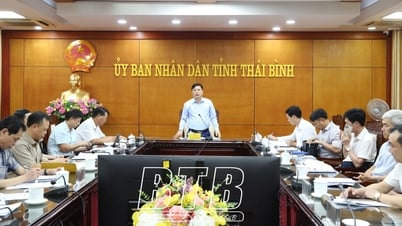


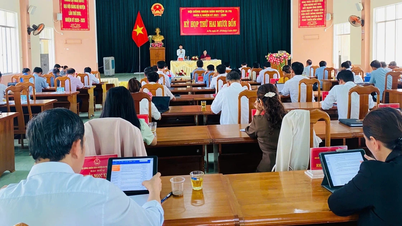



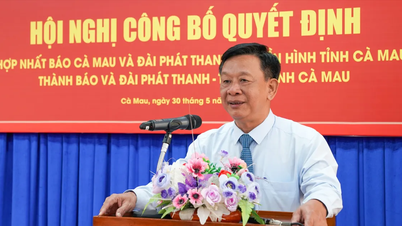









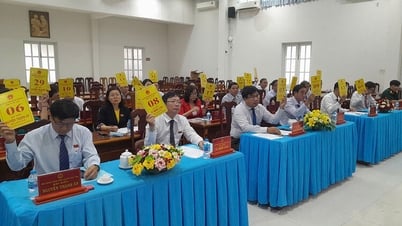


![[Photo] Prime Minister Pham Minh Chinh attends the event "Digital transformation of the banking industry by 2025"](https://vphoto.vietnam.vn/thumb/1200x675/vietnam/resource/IMAGE/2025/5/29/0e34cc7261d74e26b7f87cadff763eae)





















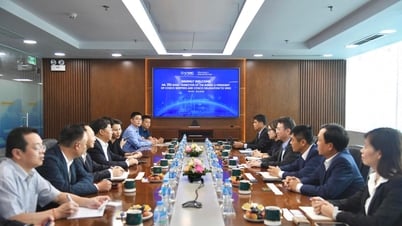

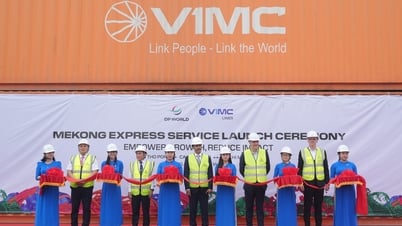














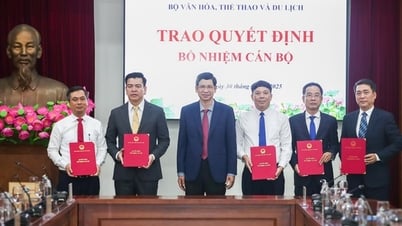







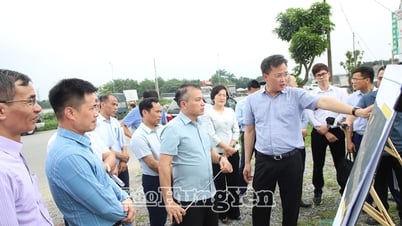



















Comment (0)